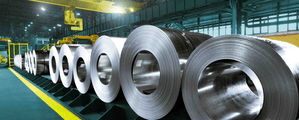
Commerce and Industry Minister Piyush Goyal said on Tuesday that India has taken up with the EU and the WTO the issue of the extra tax that is proposed to be levied on Indian steel products entering the EU under the Carbon Border Adjustment Mechanism (CBAM).
Addressing the ‘ISA Steel Conclave 2023’ here, the minister assured the country’s steel producers that the government would leave no stone unturned to get fair treatment for Indian producers and exporters and reaffirmed India’s commitment to opposing unfair taxes or levies that may harm the steel industry.
Goyal further highlighted efforts to secure better Free Trade Agreement access for the steel industry in developed countries as India aspires to transition from being a net importer of steel to a net exporter. He also emphasised the importance of intellectual property and value addition in trade agreements.
Additionally, he pledged to address concerns related to safeguard duty and other international trade agreements impacting the steel industry.
He also recognised the industry’s support for the MSME sector in India and urged continued commitment to this segment.
Goyal conveyed his sense of pride as India now stands as the second-largest steel producer globally, surpassing Japan. He underscored that with the National Steel Policy 2017 and the industry’s recent investments, along with abundant iron ore resources and surging domestic and international demand, India is poised to approach the target of producing 300 million tonnes of steel.
He commended the industry’s commitment to quality standards and the need to expand quality control orders to ensure high-quality steel products for consumers.
Goyal said that the steel industry in India currently employs approximately two million people, making a substantial contribution to the national GDP. The minister conveyed his confidence that the steel industry can significantly enhance self-reliance as India strives to meet the increasing demands of the sector.











